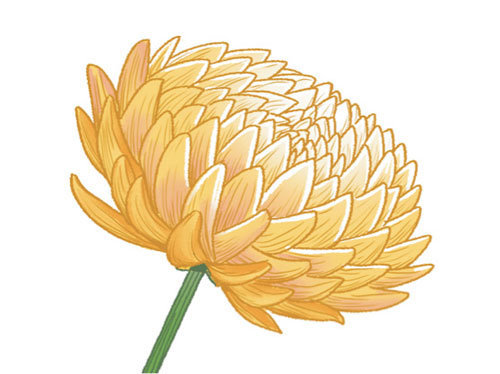Story of chrysanthemum
Story of chrysanthemum
Posted November. 12, 2021 07:29,
Updated November. 12, 2021 07:29

A close look at how chrysanthemum do their best to spread their yellow petals reminds poet Seo Jeong-ju of tenacious souls who have long weathered loneliness felt in a scops owl’s mournful singing, thunderstorms grumbling behind dark clouds and chilling frost in late fall. He must try to share years of pain and suffering by waiting in patience until the flowers start blossoming. Likewise, a three-verse Korean poem written by Lee Jung-bo delivers the same message by elaborating on how mums survive: “Facing against brutal winds from the east in March/ here stands the lonely chrysanthemum amid a freezing winter with the trees all dried up/only the mum rises stronger covered with frost.” Inspired by mums that peak by the time other flowers start to wither, the poet pays his tribute to the grits and vitality of the tenacious flower on the frosted ground.
Huang Chao, a smuggler who led the Huang Chao Rebellion that catalyzed the demise of the Tang Dynasty of Old China, sees chrysanthemum from an interestingly novel perspective. A garden filled with chrysanthemum comes across as the symbol of solitude because they meet the most flourishing and fragrant days of their life right in the middle of brutal coldness with no flirts and seduction of butterflies and bees at all.
In his own effort to comfort such a lonely being, Huang makes up his mind to give a specially dedicated place to mums among all kinds of beings out there by turning into the god of spring and flowers. His ambitious determination as the leader of the historical uprising among farmers may be implied in a way that promises to take care of every single being left behind. Otherwise, he may cry out to let go of his own frustrations amid the tides of his time rising against him.
Headline News
- Joint investigation headquarters asks Yoon to appear at the investigation office
- KDIC colonel: Cable ties and hoods to control NEC staff were prepared
- Results of real estate development diverged by accessibility to Gangnam
- New budget proposal reflecting Trump’s demand rejected
- Son Heung-min scores winning corner kick







